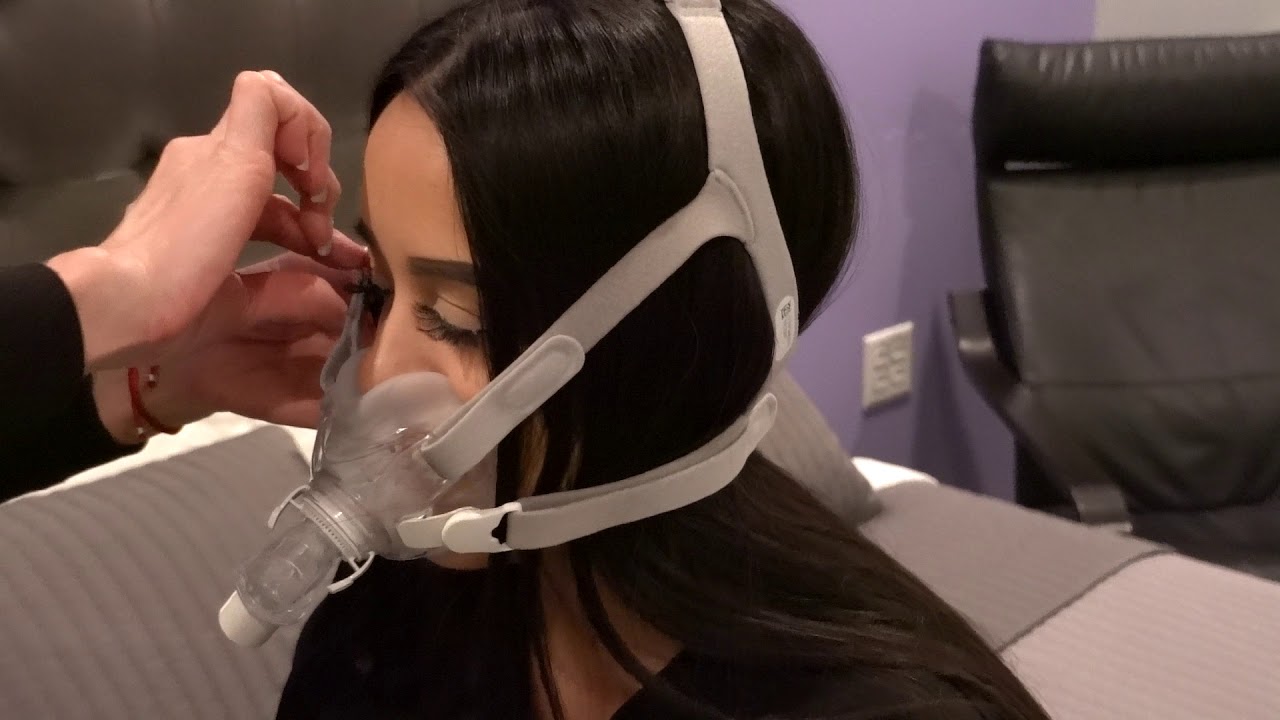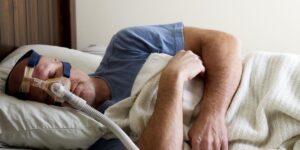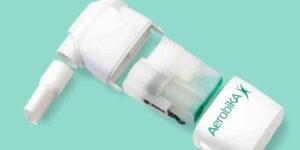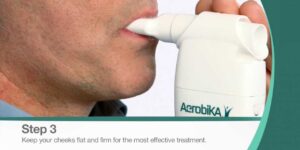
Finding it hard to tackle your sleep apnea? Do this
Dec 30 2022 Sleep Apnea Treatment how does sleep apnea happen is sleep apnea dangerous sleep apnea australia sleep apnea solutions sleep apnea symptoms sleep apnea treatmentAlthough it cannot be replaced, getting a good night’s sleep might be difficult if you have obstructive sleep apnea (OSA).
Sometimes throughout the night, people with sleep apnea have airway collapse, which causes them to stop breathing while they are sleeping. Dr. Mendez asserts that as a result, people “will shift into a lighter state of sleep or totally wake up.” According to the Australian Sleep Apnea Foundation, these awakenings may occur five to more than thirty times each hour.
People with sleep apnea usually have insufficient sleep, which frequently results in increased daytime fatigue. In addition to feeling sleepy, people may find it difficult to focus and handle emotional problems like grief.
Mendez claims that “sleep disruption also affects our hormones, namely by boosting ghrelin and reducing leptin, which may increase your appetite.” Additionally, it negatively affects immunity, making you more susceptible to illnesses like colds and other infections.
Additionally, sleep apnea may increase the risk of cardiovascular problems. According to a study that was published in February 2019 in the Australian Journal of Respiratory and Critical Care Medicine, people who experience daytime sleepiness as a result of sleep apnea may be more likely to develop heart failure, a chronic condition in which the heart is unable to pump blood effectively.
When you wake up from sleep, your breathing, blood pressure, and heart rate all increase, and your body is pumped with adrenaline, which is bad for your arteries and blood pressure, according to Mendez.
How to Identify the Symptoms and Signs of Sleep Apnea
While snoring is perhaps the most well-known symptom of sleep apnea, there are other symptoms as well. Other symptoms include gasping or choking while you sleep, breathing pauses at night (frequently noticed by a partner), excessive daytime sleepiness, waking up feeling exhausted, morning headaches, difficulty concentrating, memory problems, mood problems, and repeatedly waking up during the night to use the restroom.
If you have any of these symptoms, have recently been diagnosed with atrial fibrillation (an abnormal heartbeat), high blood pressure, or both, along with daytime sleepiness or without, Mendez urges that you talk to your doctor about the possibility of sleep apnea. He claims that snoring is not always present in women who have insomnia, and some people may become aware of their possible sleep problem owing to an activity tracker like a Fitbit.
Be open to the possibility even if you don’t think you exhibit “typical” symptoms of sleep apnea.
Mendez claims that if your doctor has a hunch that you have sleep apnea, he or she may then offer you an at-home sleep apnea test, avoiding the need for you to go to a sleep clinic for an assessment. The patients may get it a lot more quickly. The option to get this test might save your life, the speaker says.
How Sleep Apnea Treatment Can Increase Your Energy
If you have been given a sleep apnea diagnosis, the right treatment may help you stop feeling sleepy throughout the day. Your doctor can suggest that you make lifestyle changes, prescribe an oral or dental device that must be installed by a qualified dentist, or give you instructions on how to use a CPAP machine, which utilizes a mask to keep your airway open while you sleep. The best choice for you will be determined by your insurance coverage, the severity of your sleep apnea, and the availability of nearby experts.
You should avoid utilizing dental devices available over the counter or online to cure your sleep apnea on your own. These goods, in Mendez’s opinion, are not only not recommended, but they also could be dangerous. For instance, he asserts that certain dental products might damage your teeth.
The good news is that with proper treatment, your sleepiness should go away and your energy level should rise. Symptoms go away after a few days to a week or two, said Mendez. According to the doctor, how badly affected individuals feel and function during the day may fluctuate significantly after only one night.
Sleep apnea treatments that work
In addition to learning about a sleep apnea treatment, you may utilize these techniques to battle the fatigue you feel the next day.
Sleep on your side first, if possible.
Mendez claims that sleeping on one’s side, which maintains the airway open, may be all that’s necessary for people with mild kinds of sleep apnea. If you wear a T-shirt with a tennis ball sewed into the back or place a body pillow against your back, you may be able to keep yourself from rolling onto your back while you are sleeping.
Achieve fitness.
According to Mendez, who points out that additional fat may obstruct the airway, weight reduction often benefits the great majority of people with sleep apnea. In a research published in the journal Sleep Medicine in March 2014, it was shown that losing even a little amount of weight significantly decreased the likelihood that a person’s sleep apnea would worsen. In certain cases, weight loss may even be able to cure mild sleep apnea. Of course, not everyone who loses weight will benefit since even those who are thin or of a normal weight risk developing sleep apnea.
Find sleep-related treatments.
According to the NSF, sleep apnea is also associated with insomnia, a condition in which you have trouble becoming (and staying) asleep.
Mendez suggests consuming less coffee, avoiding using electronics after dark, and refraining from checking the clock. Get out of bed and do something pleasant if you’re having difficulties falling asleep, then try again later. You should also have any other medical conditions such limb mobility disorders, anxiety, or depression that can affect your sleep evaluated.
Make sure your food will provide you extra energy.
One of the best ways to increase your energy levels is by eating the right foods. Instead of stimulating foods like soda, candy, and other drinks with added sugar, go for healthy meals like fresh fruits and vegetables. (The Academy of Nutrition and Dietetics claims that they could offer you a momentary thrill but will soon cause an energy crash.)
Avoid drinking.
Even while drinking a bottle of beer or a glass of wine before bed may help you sleep, your sleep apnea may become worse. According to Mendez, drinking alcohol makes your palate floppy, which raises the chance that it may collapse and lock up. Additionally, alcohol alters the tone of the muscles in your upper airway. Additionally, you should try to avoid sedatives like benzodiazepines as these could exacerbate your bouts of sleep apnea.
Cardiovascular risk, metabolism, and sleep apnea
According to Jun, several studies have linked sleep apnea to issues including type 2 diabetes, strokes, heart attacks, and even a reduced lifespan. Why are they connected? For starters, he points out that individuals with sleep apnea often have obesity, which significantly raises the risk of diabetes, stroke, and heart attack. Obesity is often the primary cause of both illnesses, according to Jun.
However, it’s crucial to remember that not all people with sleep apnea are fat. Additionally, data point to a separate connection between sleep apnea and diabetes. According to research from Jun’s team and others, sleep apnea may raise blood sugar levels and is linked to an increased risk of diabetes, regardless of weight.
For those who are obese or overweight, losing weight is essential for treating or preventing sleep apnea. People who have excess fat around their neck, mouth, and upper abdomen are more prone to developing sleep apnea. This weight contributes to airway collapse during sleep by narrowing the neck and pressing on the lungs.
As they age, women in particular need to exercise caution. Premenopausal women often gain weight in their hips and lower body rather than their bellies, but this habit changes with time. Weight starts to build up in typically “masculine” places like the stomach, which increases the risk of sleep apnea.
“After menopause, hormones alter, and women often begin to resemble males in terms of where they put on weight. After menopause, women’s rates of apnea start to catch up to men’s, so it’s important to be aware of the hazards of this condition, says Jun. 15
For improved health, sleep apnea must be identified and treated.
Sleep apnea must be treated since it may have long-term effects on your health. Although several high-profile deaths associated with sleep apnea, like that of Judge Antonin Scalia, have been reported, Jun claims that the real danger comes from harm done over time.
According to the apnea-hypopnea index, the severity of obstructive sleep apnea may vary from moderate to severe (AHI). The AHI counts how many breathing pauses you have per hour while you sleep.
By degree of severity, obstructive sleep apnea is divided:
Your AHI must be more than 30 (more than 30 episodes per hour) to be diagnosed with severe obstructive sleep apnea.
Your AHI must be between 15 and 30 to be diagnosed with moderate obstructive sleep apnea.
Your AHI must be between 5 and 15 to be diagnosed with mild obstructive sleep apnea.
Depending on how severe your sleep apnea is, if you have symptoms like tiredness, and other health issues, you may or may not require treatment. For instance, your doctor could decide to treat even moderate sleep apnea if you have heart disease risk factors. However, if your sleep apnea is severe, your doctor may urge that you get treatment even if you don’t feel tired.
A breathing equipment known as a CPAP, or continuous positive airway pressure machine, is the major therapeutic option. To keep your throat open while you sleep, a CPAP machine pumps humidified air via your nose at a pressure that keeps it open. Breathing pauses are avoided as a result.
The first-line therapy, CPAP, is quite successful, according to Jun. Recent research from Johns Hopkins examined what happens to metabolism at night when people with sleep apnea don’t use their CPAP devices. According to the research, the apnea that followed increased blood sugar, heart rate, blood pressure, and stress hormones—a reaction akin to what could occur if you were made to stand in front of a group and speak. It’s a lot like that kind of stress reaction, claims Jun. “I would compare sleep apnea to something similar occurring every night.”
Related: Does weight loss eliminate sleep apnea?
Read More



